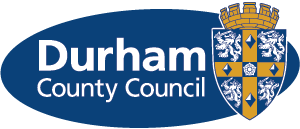Accessibility
Helping our users get the best from our website
The word 'accessibility' is used to describe whether a product can be used by people of all abilities and disabilities. A website is accessible if all people, including disabled and elderly people, can use it successfully. We are committed to making our website as accessible and usable as possible and the website is designed to follow the accessibility guidelines issued by the World Wide Web Consortium (W3C). We aim to meet the W3C’s Web Content Accessibility Guidelines in all parts of the website. We regularly check our pages to ensure they meet our accessibility requirements.
If you find any of our pages inaccessible to you please let us know (including details of the technology you are using) and we will make every reasonable effort to either remove the barrier or provide the information in a format that you find acceptable.
If you have any questions or suggestions regarding the accessibility of this site, or if you have difficulty using any part of it, please contact us.
Browser accessibility features
Most browsers and operating systems have built in accessibility features such as the ability to change the colour of the text, turn off images and stylesheets and increase magnification. You can find some guidance below about:
The word 'accessibility' is used to describe whether a product can be used by people of all abilities and disabilities. A website is accessible if all people, including disabled and elderly people, can use it successfully. We are committed to making our website as accessible and usable as possible and the website is designed to follow the accessibility guidelines issued by the World Wide Web Consortium (W3C). We aim to meet the W3C’s Web Content Accessibility Guidelines in all parts of the website. We regularly check our pages to ensure they meet our accessibility requirements.
If you find any of our pages inaccessible to you please let us know (including details of the technology you are using) and we will make every reasonable effort to either remove the barrier or provide the information in a format that you find acceptable.
If you have any questions or suggestions regarding the accessibility of this site, or if you have difficulty using any part of it, please contact us.
Browser accessibility features
Most browsers and operating systems have built in accessibility features such as the ability to change the colour of the text, turn off images and stylesheets and increase magnification. You can find some guidance below about:
- increasing the size of the text in your web browser (see more details below)
- changing text and background colours (see more details below)
- how to magnify your screen
- making your mouse easier to use
- using your keyboard to control your mouse
- alternatives to a keyboard and mouse
- screen readers and talking browsers
Increasing Text size
Some users might find screen text easier to read by increasing the size at which text is displayed. To do this you should use the buttons provided on screen or simply adjust your browser's settings.
If you use Microsoft Internet Explorer, go to the View menu, select Text Size and then either Larger or Largest. If you use Firefox, go to the View menu, select Text Size and then either Increase Ctrl and +, Decrease Ctrl and - or Normal Ctrl and 0.
For other web browsers you may be able to find details online, on how to override a websites standard text setting.
Changing colours
If you use Microsoft Internet Explorer, go to the Tools menu, select Internet Options, select Colours and make changes to text and background colours in the Colours panel.
To override website font and colour settings
If you want to have the fonts and colours you specify in Internet Explorer to be used for all websites, regardless of the fonts that have been set by the website designer, follow these steps:
- Click to open Internet Explorer.
- Click the Tools button, and then click Internet Options
- Click the General tab, and then click Accessibility.
- Select the Ignore colours specified on webpages, Ignore font styles specified on webpages, and Ignore font sizes specified on webpages check boxes, and then click OK twice.
For other web browsers you may be able to find details online, on how to override a websites standard colour setting.
Document viewers
Some of the documents/media in this site may require a reader or viewer software installed, some examples are listed below:
- Open Office
- Microsoft Office
- Adobe Reader
These listed above are suggestions of document viewers and are not an endorsement of either product or software.
Readability
We have made every effort to ensure this web site is easily readable using plain English and try to avoid using jargon wherever possible. We carry out regular testing with our local customers and all our publishers attend training to present content in an easy to read format.
Translate the site
There are a number of options available if you want to translate pages on the website into other languages:
- Google Translate
- Chrome automatic translate
- Firefox - download a translator plugin
These listed above are suggestions of translation software and are not an endorsement of either product or software.
